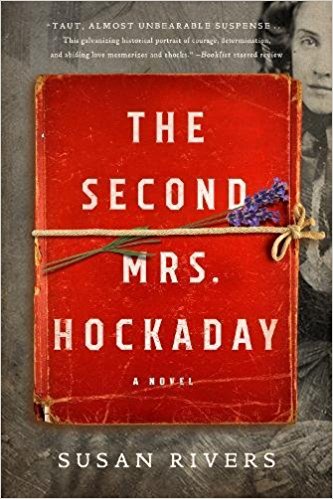In what ways is this a story of Paradise Lost – for Placidia and the Major, for their son learning the truth, and for the South in general?

 In what ways is this a story of Paradise...
In what ways is this a story of Paradise...
Created: 10/23/17
Replies: 5
Join Date: 10/15/10
Posts: 3442
Join Date: 10/09/14
Posts: 58
I grew up in Georgia, and even in the 1960s there were many Southerners who looked back on the pre-Civil War days as the golden years of the south. In school, we were taught the now-discredited idea that the South seceded for states' rights, not because of slavery. Obviously we now know how the terrible institution of slavery ruined generations of black families. I think this book does do a very good job of presenting slavery in both it's cruel aspects and also in the complicated relationships between whites and blacks. We are able to witness hatred and love among the characters, regardless of race.
Join Date: 02/11/16
Posts: 60
I felt that for the Major and Placidia their story was a kind of paradise lost in range of ways. The Major feared that Placidia, like Eve, had succumbed to temptation and ruined the 'eden' that marriage appeared to offer. For Placidia, there is no doubt that any sheltered illusions she had about the world were completely shattered by her experiences. If she thought the world was paradise she found it the hard way that it was not. Similarly, although less dramatically, their son learns the truth about what happened to his parents and has to re-evaluate his understanding of the dynamics in his family as he grew up.
I can't speak the experience of growing up in the South with an edited version of what the civil war was all about, but I'm sure that's a big takeaway from this novel. In that sense, the novel shows that there was no paradise lost because it was not a paradise in the first place. Slavery and the idea that you could own other people is a corrupting concept. Even a man like Placidia's father who appeared to be a good man, had been corrupt. You could argue that white people in the South lost their chance at paradise long before the war - it was lost when they took people as slaves. Maybe the civil war was the chance for paradise to be regained?
Join Date: 03/13/12
Posts: 548
Paradise is often an illusion. History textbooks often present a distortedly positive view of the country for which they are published. Legal slavery is a sad phase of history for any country. Some people enjoyed the lifestyle and many suffered tremendously. The instant chemistry and physical attraction between Placidia and Major Hockaday provided a brief paradise honeymoon phase, but just like that level of intensity does not continue forever, mortal existence for anyone is not 100% paradise. This has been true throughout history. A modern example: First Lady Jackie Kennedy started using the phrase "Camelot" to describe her husband's brief and tragically interrupted term in the White House, and her marriage to President John Kennedy was not without its trials and infidelities. The son of Placidia and Major H. learns what many children come to realize - that parents are just people doing the best they can (in the case of good parents), and they really did not have all of the answers to life.
Join Date: 05/29/15
Posts: 460
The South was so many different things to so many different people. The Civil War brought out the worst of times for everyone but Dia and Griff did the best they could for their family.
Join Date: 02/05/16
Posts: 381
I have to agree with the thoughtful comments above, especially with the idea that Paradise is an illusion, a fantasy, and it can be cultural as well as personal. Dia's illusions about her father's nobility of character, and about the Southern male code of chivalry, were shattered; Major Hockaday's illusions about the importance of having Dia all to himself, about his own judgment in leaving her (based on an illusion about Southern society that didn't include dishonest neighbors and pilferers), and about the Confederate cause were shattered. They were willing to learn to live without illusions, to rebuild their relationship, to face up to reality and deal with it. Sadly, the South as a culture seems not to have done so -- based on current events, and what Anne C. has said about growing up in the South. But other parts of the country, too, have their own versions of this illusion that the past was more golden than in reality, that white (and male) privilege doesn't exist, or isn't a big problem, that America is a place of equal opportunity and so poverty is always due to individual fault and not a rigged economic system...
Interesting question, because I think this novel is a subtle but powerful argument against the cultural illusions that are plaguing us as a nation and keeping us from living up to our ideals.
Reply
Please login to post a response.